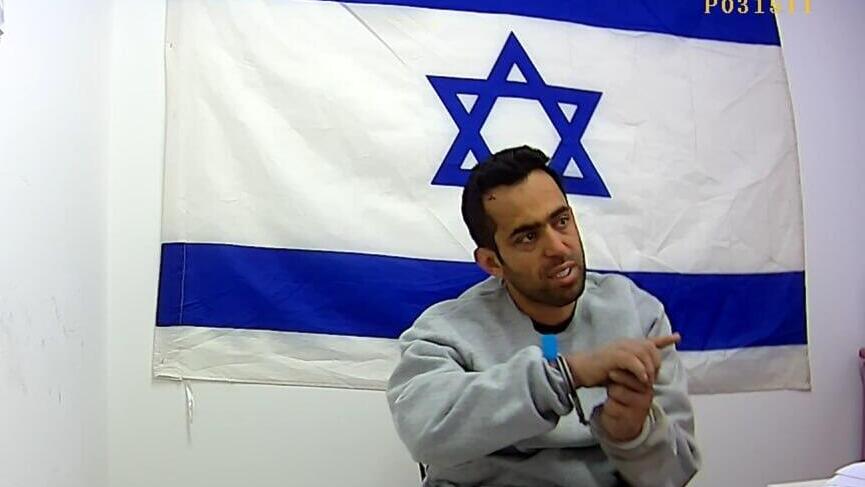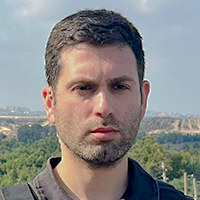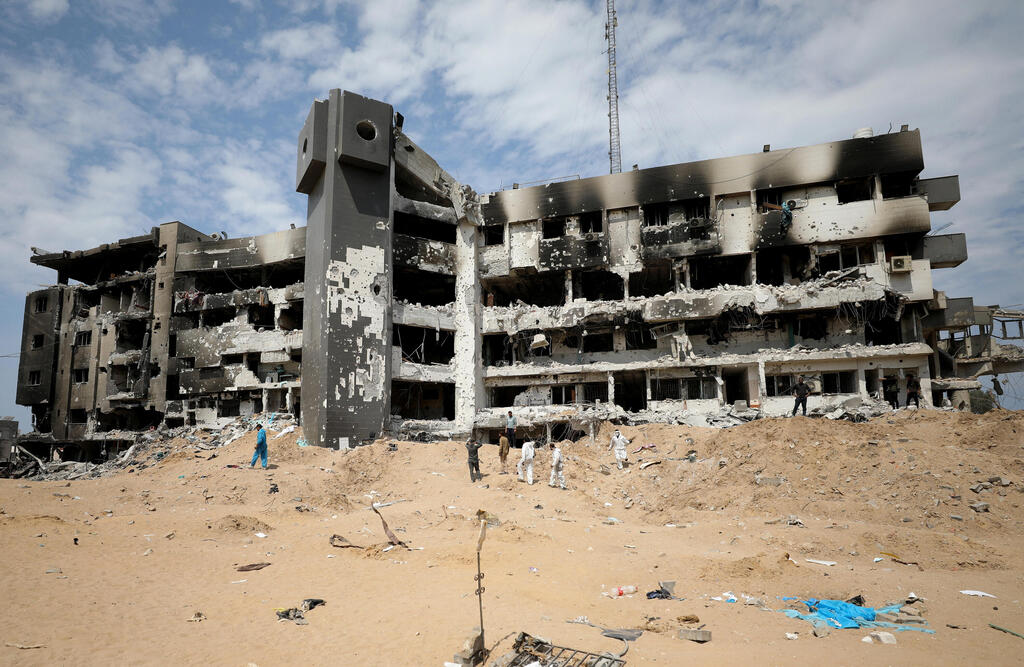Islamic Jihad terrorist speaks about use of Gaza hospitals by terror factions
The IDF revealed on Monday that during the interrogation of Tariq Silmi Ousa Abu Shlouf, the spokesperson for the Islamic Jihad's political office in the Gaza Strip he confessed Hamas and other terror organizations utilize all hospitals in the Gaza Strip as military bases.
Abu Shlouf also confessed that it was his organization that concocted the story that sparked controversy at the outset of the war, claiming that the explosion at Al-Ahli Hospital was caused by an Israeli rocket.
2 View gallery


Tariq Silmi Ousa Abu Shlouf the spokesperson for the Islamic Jihad's political office in the Gaza Strip
(Photo: IDF Spokesperson's Unit)
At the beginning of the war, was it true that a rocket hit the hospital?
"It was indeed a rocket from within Gaza, but we said it was Israeli. To erase this narrative, the organization fabricated a story claiming that the rocket belonged to the 'occupation' and that the target was the building. Some international media outlets relied on this narrative, and some international communication systems automatically contact us when such events occur."
Regarding the connection with the international media, Abu Shlouf said, "They like to interview figures from the political office. Senior figures like Khaled al-Batsh. Several international networks conducted interviews with him. He sits with a reporter, who starts asking him, 'Was the rocket that fell yours?' Al-Batsh, of course, replies, 'No, it's from the occupation.' The reporter knows that the rocket is ours, not yours."
Even if the reporter knows, is he still echoing what the organization says?
"Yes, because we tell the reporter before he publishes it, he needs to send it to us for approval. If it doesn't fit our narrative, it's not published. It's because the reporter needs us for more interviews."
The Islamic Jihad spokesperson also explained the difference in dealing with the Arab and Western media. "International systems are different from Arab ones; they focus on humanitarian issues. We don't speak to them in a language of violence, destruction, and revenge," said Abu Shlouf.
"They come and say, 'Come, I'll talk to you for a minute or two, but only about the humanitarian aspect.' This means, for example, to say 'our right to live' or 'we want the situation to return to normal, and our children deserve to live like other children in the world.'"
Regarding the terrorist organizations' use of hospitals, Abu Shlouf they "use all hospitals because they have internet and electricity there 24/7." According to him, "They choose certain places. For example, they take two rooms from the X-ray department, two from the triage department, and two from the internal medicine department. They don't completely shut down the departments."
The spokesperson also admitted that the organizations use hospital ambulances for transporting senior, wanted, and injured individuals. Abu Shlouf also recounted his interactions with spokespeople from other organizations. "For example, with Hazem Qassem from Hamas, there are also visits. He comes to my office, or I go to him to discuss some of the communication issues related to resistance," he described.
"We meet together with the head of the Hamas media department and other speakers from other factions, and then we discuss. For example, we want to shift the focus from the energy crisis. The situation in Gaza is very difficult, and it bothers people."






